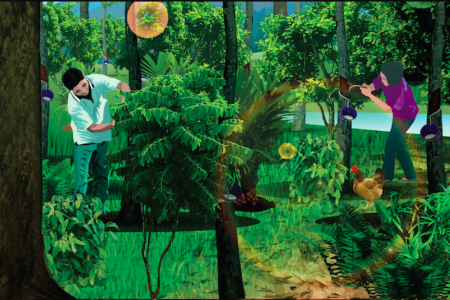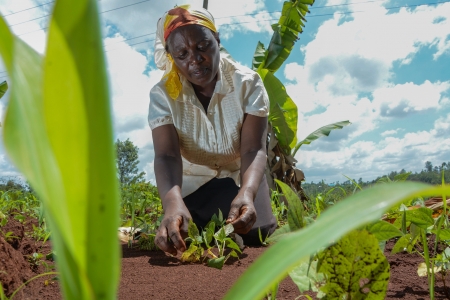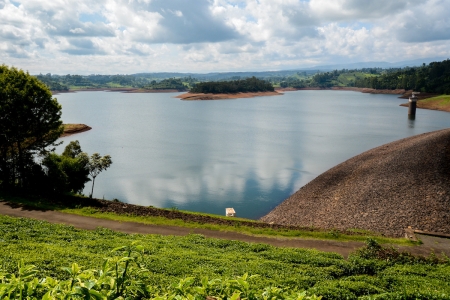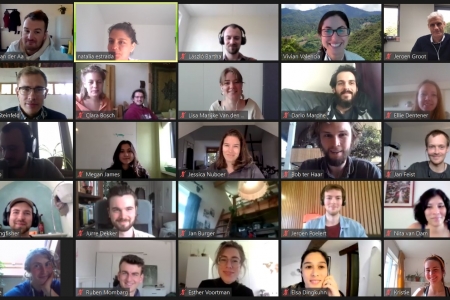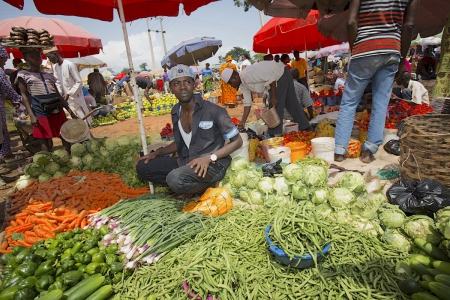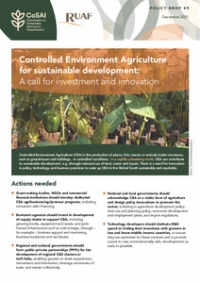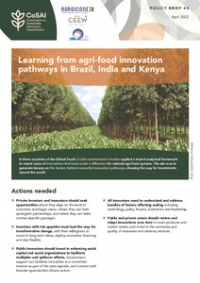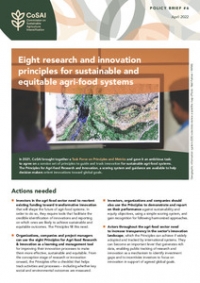This is the second blog post in our Focal Region Roll-out Series. Read the first here.
From outcomes to outputs at the WLE Writeshops
“Unity is strength... when there is teamwork and collaboration, wonderful things can be achieved.” Mattie Stepanek, American Poet and Peace Advocate
The CGIAR Research Program on Water, Land and Ecosystems (WLE)'s four focal region writeshops are now finished – it has been an enormous amount of work for the team, a coming together of minds from across the four regions and a big step forward for the program.
I was pleasantly surprised by the changes in viewpoints and proposals over course of the writeshops. People entered the process with a limited understanding of WLE and our aims and in some cases not knowing any of the other project partners. They left with strong links to other projects, improved research questions and outputs, a much clearer understanding of WLE and some new friendships.
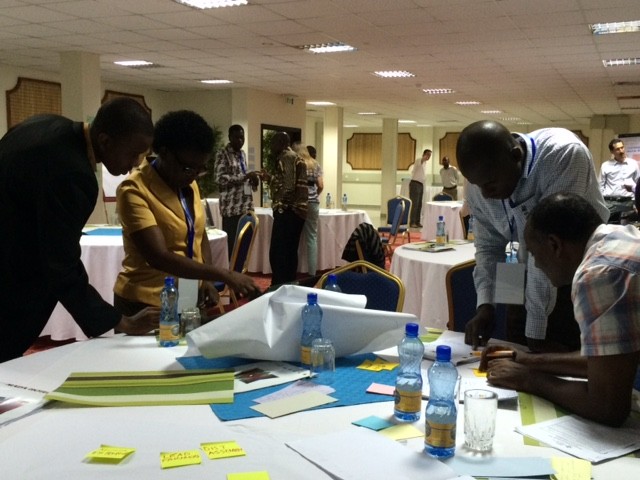 Participant collaboration was central to the writeshop process. Photo: Martina Mascarenhas/WLE
Participant collaboration was central to the writeshop process. Photo: Martina Mascarenhas/WLEBuilding from the call for Expressions of Interest (EOIs), the WLE writeshops brought together two to three representatives from each successful proposal for approximately one week to: build synergies across the various projects; develop impact pathways; foster a common understanding of the WLE Ecosystem Service and Resilience Framework and the Gender Strategy. Research teams were given time to revise their final proposals as we challenged them to think beyond just research outputs (journal articles, reports, models) and link potential outputs to the needs of the research users.
Designing research from a different perspective
The WLE Focal Region Writeshop process was distinctive in that it turned the focus on identifying research outcomes as the basis for designing research. The systematic approach built upon the Challenge Program on Water and Food (CPWF) Participatory Impact Pathway methodology, which is also being used by the CGIAR Research Program on Climate Change, Agriculture and Food Security (CCAFS).
In each writeshop we challenged researchers to think beyond traditional research approaches. Instead of starting with a research output at they assumed would be useful in the region, we reversed the process.
We asked projects to create a joint vision for the region and to map each project into this vision. Then we worked backwards to determine which outputs would be useful to the identified next users of the research. After working through this process, the majority of the writeshop participants changed their research questions and methods to better fit the situation on the ground. We believe that this process will result in research projects influenced by demand in the region, that are better suited to achieve development outcomes.
Keys to success
From the feedback we received, the writeshops were a resounding success. Reflecting on the process, some keys to success for us are as follows:
1) Careful planning and flexibility – it goes without saying that running four successful week-long writeshops, in four different countries, in six weeks, takes careful planning, a huge team effort and a bit of luck. During the writeshops we used an adaptive management approach to adjust to changes depending on the needs or demands of the participants.
2) Outcome approach – we built an approach based on impact pathways to guide researchers through outcome-oriented proposals. This means that rather than start from our research problem and research outputs, we started with the development challenge and changes in knowledge, attitudes and practices we wanted to see. It was only once we identified outcomes and users of research that we started to look at research questions and methods. By focusing on a research for development approach we were able to bring clarity to the group and understand who we wanted to target and for what end. Our research for development approach also helped to build coherence across the projects.
3) A programmatic approach – One of the main goals of the writeshop was to avoid siloed projects and bring the proposals under a unified vision. To accomplish this we grouped projects together throughout the week and focused on constructive peer feedback. The group work approach helped participants to see linkages between projects and, in many cases after discussing projects together, the proposals decided to work on similar sites or share methods. I was pleasantly surprised by the extensive synergies built during the weeks.
4) Understanding WLE - WLE has had problems in the past with partners not fully understanding what the program is about. We started each writeshop with clear presentations about the program goals allowing ample time for questions. This was particularly around the WLE pillars of ecosystems and gender. By the end, it was clear most partners had a clear idea of how to address these core areas of work. That said, it was flagged that more work is needed to link these new proposals to the current WLE research portfolio (focused around the WLE research themes)
5) Strong facilitation and systematic learning interactions – Having strong facilitators in each writeshop was key to keeping people engaged. We pushed participants from 8:30 am to 5:30 pm each day. By the end many were tired, but strong facilitation kept energy levels up and technical presentations on science and uptake helped to keep things moving.
Keeping things fun - despite the long days, we had two social events per writeshop and there was a notable difference in the group after bonding over some good food and drinks. We also ran a series of ice-breakers and energisers throughout the week to keep everyone smiling. Although this element is often overlooked, it is important to bring people together outside of the task. As one writeshop participant noted “Often the most valuable conversations happen over drinks”.
I joined WLE just five months go and started to reflect on what we had accomplished in a matter of five months. We had rolled out an open call for research proposals that were aligned to regionally demand-driven research programs. Over 300 applications submitted of which 33 were invited to the writeshop stage. Combined, the successful EOIs bring more than 175 partner organisations, the majority of whom are outside CGIAR. Approximately 75 people attended the writeshops, creating a tremendous infusion of ideas, experiences and connections.
There was a genuine buzz in each workshop and many participants commented that it was a big departure from the way CGIAR normally handles partnerships. We received a lot of positive feedback on the support that WLE will provide to these projects over the coming two years.
Learning from CPWF, we recognise that to achieve impact and build coherence, projects need on-the-ground support. To achieve this we have put teams in place in each focal region to support the projects. This includes a full-time focal region manager who will be thinking how to link these projects to ongoing WLE and regional activities, avoid overlap in engaging with next users and ensure that each project is staying on track.
Although WLE hopes to enter into a phase two, these projects will initially only run for two years. I feel that the process we have put in place will give the program the best possible chance at significant and lasting impact.
For more information contact the WLE Global Research Coordinator, Nathanial Matthews at n.matthews(at)cigar.org
For more information on the writeshops, visit the individual writeshop pages here: Ganges, Mekong, Nile and East Africa, Volta and Niger
Related Blogs:
Developing high societal impact proposals: perspectives on the CGIAR WLE approach from UNESCO-IHE
Business NOT as Usual from WLE



